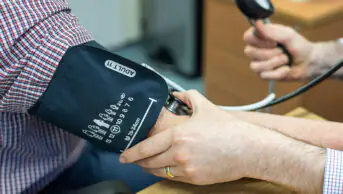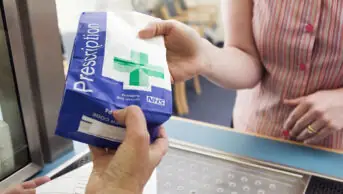
Mclean/Shutterstock.com
There is no doubt that the future of UK pharmacy relies on many pharmacists taking the leap and training to become independent prescribers (IPs).
Pharmacists are already highly skilled professionals, with much to offer the health service and patients, but only by “completing episodes of care”, as the new chief pharmaceutical officer for England puts it, can the profession truly realise its potential.
The number of pharmacist IPs in Great Britain is growing — up two-thirds over the past two years — reaching almost 15,000 in August 2022. This is a major milestone and The Pharmaceutical Journal is celebrating by profiling the work of several independent prescribers from across the UK and in different sectors.
These profiles show just what a broad range of clinical expertise these IP pharmacist are developing and how they are helping patients get the best care in an accessible way, with some managing complex skin conditions and others weaning patients off opioids. They have become integral parts of their teams and are “cutting out the middleman” — as one contributor put it — by no longer having to find a GP to sign off prescriptions.
And this is just the beginning. Pharmacist IPs are already at work across the UK and, in early 2023, community pharmacies in England will be included in ‘pathfinder pilots’ that will look at the best way to roll out IP clinics in every area of England. As of 2026, everyone graduating with an MPharm will have qualified as an IP at the point of registration.
There are also increasing numbers of funded IP training opportunities available for those already on the register. For instance, NHS Education for Scotland (NES) announced on 6 May 2022 that it would fund 186 training places, in addition to the 244 places that were funded in 2021/2022. In August 2022, Health Education England opened applications for 3,000 funded pharmacist IP training places and, in December 2021, the Welsh government revealed it had allocated £3m to pharmacy training in 2022/2023, with part of this fund set aside for increased IP courses for the existing workforce.
Despite this increase in opportunities, there is a risk that some pharmacists get left behind
However, despite this increase in opportunities, there is a risk that some pharmacists get left behind. There remain issues with how pharmacists can access support. Data obtained through our annual salary and satisfaction survey show that the most cited barriers to training for non-prescribers were “no time to do the course” (46%) or “no access to a designated prescribing practitioner” (36%).
In its policy on pharmacist IPs, published in 2021, the Royal Pharmaceutical Society emphasised that training to support pharmacists to become designated prescribing practitioners (DPPs) “should be funded and accessible to all that are eligible to fill the roles”, and there also must be funding to support ongoing participation in training.
The Welsh government has released national funding to support DPPs and, in February 2022, Community Pharmacy Scotland launched a project looking at how best to support DPPs in Scotland, crucially providing pharmacy employers with a backfill payment for their time.
Meanwhile, Health Education England has funded an innovative ‘Teach and treat’ pilot scheme in the South West of England that provides financial support of £56,000 for each DPP. This approach should be rolled out further if successful.
Every pharmacist should be supported to become an IP, if they wish to, and we urge employers and policymakers to look at what they can do to support this change so that no one is left behind.
The Pharmaceutical Journal will also be looking at how we can provide better resources for pharmacists wishing to become IPs; there will be more information on that in the new year. PJ


